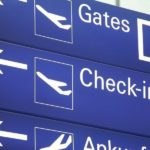US Customs and Border Protection (CBP) has announced that, in partnership with Aerostar, it will be adding the Luis Muñoz Marin International Airport (SJU) in San Juan, Puerto Rico as the latest border crossing that will feature its Simplified Arrival program.

The Simplified Arrival program uses facial recognition and biometric authentication in an effort to automate and streamline the processing of passengers by automating manual document checks that are required for admission into the United States.
“CBP is excited to partner with Aerostar to deliver a secure, efficient, and seamless process for identity verification for travelers arriving into the United States,” said Gregory Alvarez, Director of San Juan Field Operations. “CBP’s public-private partnerships to expand facial biometrics are essential to enhancing security and streamlining travel while protecting the privacy of all travelers.”
SJU is the latest border checkpoint to feature the CBP’s biometrics-based passenger processing program, joining a number of land border crossings in Texas, California, Arizona, as well as northern land crossings in Buffalo and Detroit.
Simplified Arrival in an international arrival process that provides a touchless alternative to manual international arrivals into the US. It also helps fulfill a congressional mandate that strives to record the biometric data of non-US citizens upon their entry and exit from the country.
The system works by having travelers arriving at SJU on an international flight pause for a photo at a primary inspections point. The biometric data extracted from the photo is then authenticated against the images of the travelers on their official documents such as a passport or visa photo.
The program is optional for US citizens and a select group of foreign travelers whose biometric information is already on file. If an individual who is eligible to opt out wishes to do so, they must present a valid travel document for inspection by a CBP officer, and will then be processed in accordance with existing requirements for admission into the US.
Air travel is among the hardest hit industries by the COVID-19 pandemic, and biometric technology has emerged as a popular tool to help enable a safe return to traveling. Despite this, over the past several months there has been a growing awareness of the privacy concerns associated with the collection of biometric data. Some studies have shown that facial recognition algorithms in particular can demonstrate a rather pronounced racial bias that could potentially lead to false positives among people of color.
“CBP’s facial comparison algorithm shows virtually no measurable differential performance in results based on demographic factors,” noted Alvarez. “We continue to partner with the National Institute of Standards and Technology to further enhance the facial comparison process.”
In a press release announcing its partnership with Aerostar, the CBP notes that “Simplified Arrival pairs one of the industry’s highest ranked facial comparison algorithms (as assessed by the National Institute of Standards and Technology) with trained CBP officers who are skilled at verifying the authenticity of travel documents.”
The release goes on to say that the CBP has taken steps to “safeguard the privacy of all travelers”, and that in doing so it has limited the amount of personally identifiable information used in the process.
–
March 29, 2021 – by Tony Bitzionis




Follow Us